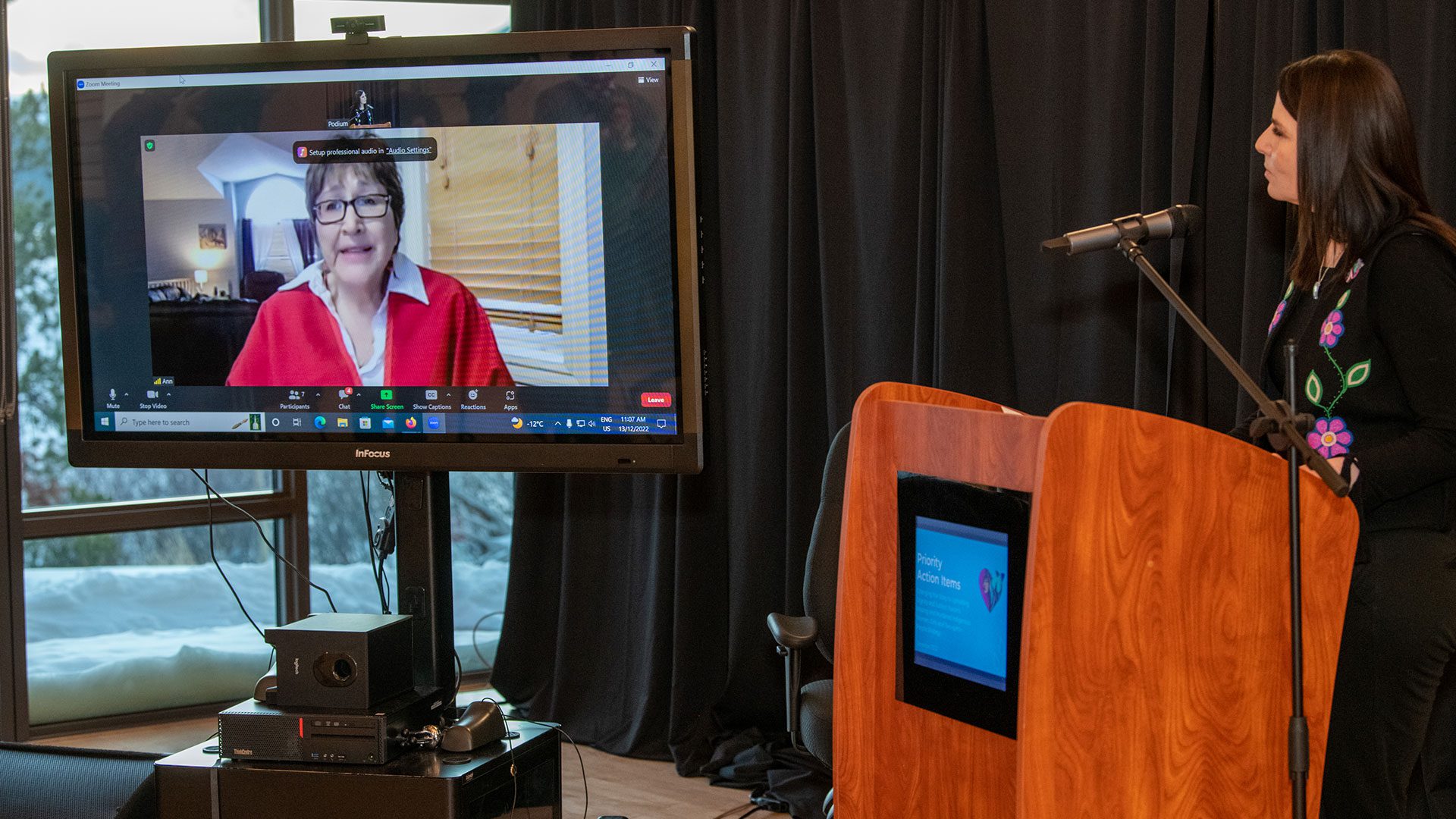The government of Yukon is expanding its commitments aimed at ending violence against Indigenous women, girls and Two-Spirit-plus people.
The Yukon Advisory Committee (YAC) on Missing and Murdered Indigenous Women, Girls, and Two-spirit+ People released a strategy called Changing the Story to Upholding Dignity and Justice on Dec. 13.
The document expands on the territory’s previous a strategy released in December 2020. The original strategy was a direct response to the national inquiry’s report into missing and murdered Indigenous women and girls in Canada and included 231 calls for action.
“We really wanted to get this document out because folks are considering their work plans, they’re considering how to move forward on the actions within the strategy, and so this document provides more detail and more guidance around that,” said Jeanie McLean, YAC’s co-chair and the Minister responsible for the Women and Gender Equity Directorate.
“It was really important to us to put everything into a process, into really clear direction and to keep families at the center of that.”
The new document builds on what the committee heard from community partners, families and Survivors at an MMIWG2S+ accountability forum that was held earlier this spring.
Twelve priorities are included in the new document, including two new priorities on engaging men and boys in ending violence against women and improving communications and transportation services.

Co-chair Ann Maje Raider, who is also the executive director for Liard Aboriginal Women’s Society, said transportation has been a particular concern for women in remote communities since the closure the territory’s Greyhound bus services in 2018.
Maje Raider and McLean said it’s an issue families impacted by MMIWG2S+ want addressed.
“It’s too risky and dangerous for hitchhiking, so this is in the strategy. We’re about looking at what’s out there, what do we have and (we’ll) hopefully put something in place that will provide more safety,” Maje Raider said.
She noted recent work in B.C. to improve safety for Indigenous women along the Highway of Tears and that the committee hopes to do something similar in Yukon.
McLean said the new document will further provide guidance, organizational leads and milestones to ensure the committee is held accountable, which she called “a different approach.”
“I’m not aware of any other strategy in Canada that includes accountability of a framework within it,” she said. “(We’re) really building on that whole notion of accountability to each other and to the families.”
The committee intends to complete a joint implementation plan which will be unveiled at a second accountability forum next year.
All actions in the document are expected to be completed within the next 15 years.
Maje Raider said the ultimate goal is a violence-free Yukon for all Indigenous women, girls and two-spirit-plus people.
“I want to see a tomorrow where it’s our young grandchildren that are out calling for and end to violence. I want see a day where I see young men drumming together in unison and to bring attention to violence when a woman has been harmed that our men and boys are out there drumming and working with us to end this violence.”









